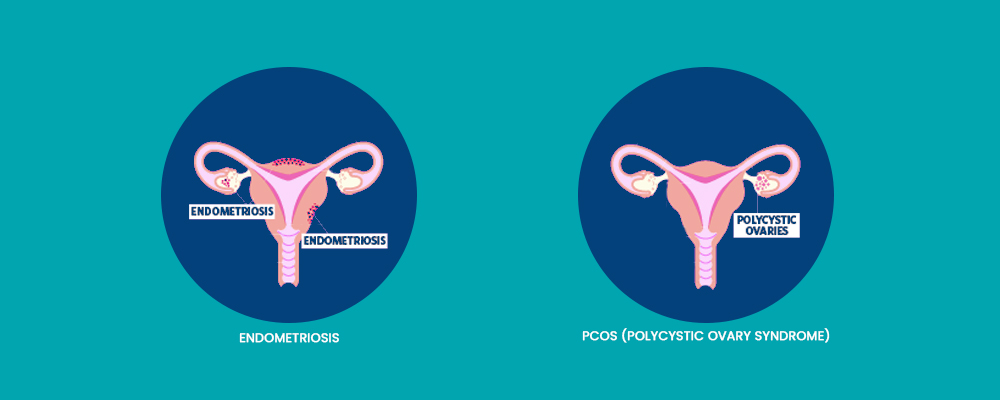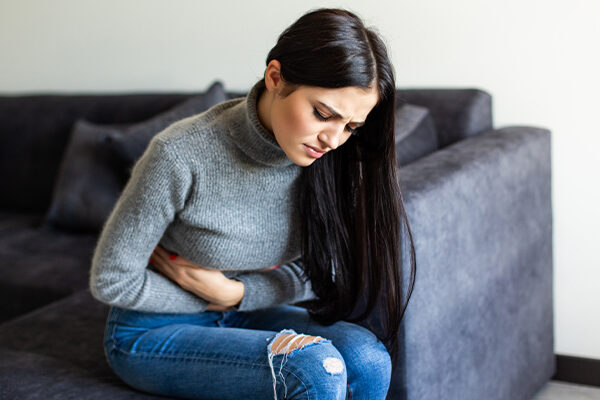Last Updated on December 19, 2023
Why draw a comparison between PCOS and Endometriosis?
Polycystic ovary syndrome (PCOS) and endometriosis are similar in terms of being chronic conditions that can happen to women who are of childbearing age. Although both conditions can be easily confused with one another, they are very different from each other. Knowing the difference between the two is important because it could lead to very different treatment plans.
In this blog, we will dive into the comparison of PCOS vs endometriosis, which will guide the reader regarding these conditions. We also advise them to check out Revive’s Women’s Health Clinical Trials, details of which will be discussed later in this blog.
What is PCOS?
Before understanding the difference between PCOS vs endometriosis, it is important to know what PCOS is. Polycystic Ovary Syndrome (PCOS) is a hormonal disorder that usually appears early in a woman’s reproductive years and is one of the most common causes of female infertility. PCOS commonly presents with the following symptoms:
- Infrequent or irregular menstrual cycles
- High levels of androgen (male hormone), which can lead to acne and excessive facial or body hair growth
- Insulin resistance, which increases the risk of developing type 2 diabetes
What is Endometriosis?
Again, before going into a comparison of both conditions, we should know what endometriosis is as well. Endometriosis is uterine growth occurring when tissue that normally lines the inside of the uterus grows outside of it. The place where it happens is usually inside or around the ovaries, fallopian tubes, and the tissue that lines the inside of the pelvis.
This endometrial tissue breaks down and bleeds every month, causing pelvic pain among individuals.
Also read: Endometriosis Flare-Ups and How to Cope With Them
PCOS vs Endometriosis: Symptoms
Before going into more detail about their differences we must first understand similarities between both.
Endometriosis and polycystic ovary syndrome (PCOS) are both disorders that affect people who are females between 12 to 52 (that is of reproductive age). Both conditions can cause menstrual issues and difficulty conceiving.
Now that the similarities have been taken care of let’s look at the key differences between both PCOS vs endometriosis. We will do this by comparing their symptoms side by side. The table below lists the symptoms of both conditions.
| Endometriosis | PCOS |
|---|---|
| Abdominal pain | Diabetes and insulin resistanc |
| Chronic pelvic pain | Fluid-filled sacs in the ovaries |
| Constipation | Excess body and facial hair |
| Frequent urination | Infertility |
| Heavy periods | Infrequent menstrual cycles |
| Infertility | Male-pattern baldness |
| Painful bowel movements | Masculine features |
| Pain during periods | Obesity |
| Painful sex | Severe acne |
| Pain during urination | |
| Rectal bleeding | |
| Urinary urgency |
What Are The Causes of PCOS vs Endometriosis?
Although PCOS and endometriosis both affect female reproduction and can cause infertility, they are distinctly different from one another in many ways. To put it simply, a problem with hormones causes PCOS, and endometriosis is caused by abnormal cell growth outside the uterus.
Endometriosis
As of now, it’s not exactly clear what causes endometriosis. There are, however, some causes that could be associated with this condition. One of these is retrograde menstruation (uterine tissue flows through fallopian tubes and into the pelvic cavity i.e. in the wrong direction). Another factor is impaired immune system in which people with impaired immune systems suffer endometriosis. Some other causes are genetics, increased estrogen levels, and abdominal surgery (after surgery endometrial tissue can be transferred to other organs).
PCOS
Like endometriosis, researchers have not come to a conclusion on what exactly causes PCOS, but they do agree that it is a complex endocrine condition resulting from factors like lifestyle changes and diet. A hormonal imbalance, such as a raised level of testosterone, could cause PCOS. Other than this, the body’s inability to effectively use insulin can make your ovaries produce more male hormones. Lastly, too much inflammation can also result in high levels of male hormones.
PCOS vs Endometriosis: A Psychological Aspect
Studies shed light on a particular aspect of women’s health which is the deterioration of their mental health. This study has concluded that there is an increased risk of moderate to severe psychological distress in young women with this condition than in women without a history of these conditions.
If you do suffer from psychological disorders, you may want to check out Revive’s Psychiatry Clinical Trials.
Revive’s Women’s Health Research Studies
Revive Research Institute conducts a range of clinical trials designed to improve women’s health and well-being. The women’s health clinical trials are oriented towards improving health issues pertaining to women. With our team of expert gynecologists, we aim to facilitate people’s access to potentially novel treatments that are not available to the general public yet.
Our range of clinical trials for women includes Interstitial Cystitis, HPV and cervical Cancer Screening, Oral Contraceptives, and much more.
Conclusion
PCOS and endometriosis are two conditions that are often confused with one another. This blog aims to highlight the key differences between PCOS vs endometriosis. Even though both conditions affect the female reproductive organs and result in infertility and other problems they are different from each other with unique symptoms and causes.
Having a deep understanding of PCOS vs endometriosis may result in women being able to identify symptoms and seek appropriate medical care.





